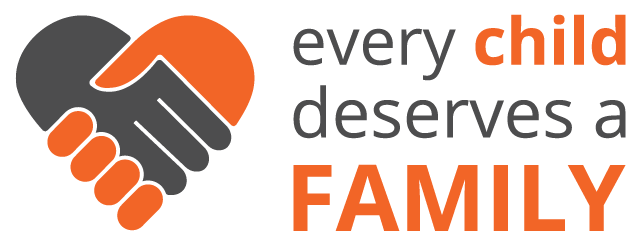Looking to start a conversation about the Every Child Deserves a Family Campaign? Here are some points to note:
-
Adoption and parenting should focus on creating safe, stable, loving forever homes for kids.
All child welfare decisions should be made in the best interests of the child, not based on the religious beliefs of child services agencies or workers.
A child welfare continuum should prioritize keeping families together but when that is not in the best interest of the child, placement with kin, short-term appropriate foster care or adoption by a forever family.
We have laws governing child services agencies for a reason. Child services workers should be expected to follow those laws. When states allow adoption decisions to be based on the individual beliefs of child placement workers and agencies, instead of the best interests of children, it’s kids who pay the price.
“License to discriminate” laws allow child services agencies to keep a child in foster care or a government group home rather than allowing her to be adopted by qualified, loving parents, simply because they don’t pass an agency’s religious test.
Same-sex couples are seven times more likely to foster, and seven times more likely to adopt, than opposite-sex couples.
More than half of the young people in foster care are youth of color; Black youth, Hispanic youth, and American Indian/Alaska Native youth are among the most likely to be in foster care. For example, 69% of youth in out-of-home care in the state of Texas are youth of color, a state where over 1,200 children age out of foster care each year without a forever family, which passed a child services “license to discriminate” law in 2019.
In 2022 over 18,000 young people “aged out” of foster care across the country, reaching adulthood without ever finding a loving, forever family – placing them at higher risk of involvement with the criminal justice system, homelessness, unemployment, and being trafficked.
-
Allowing child service providers to discriminate reduces the number of qualified foster and adoptive homes for all kids in care.
LGBTQ people are more likely to adopt older children and children with disabilities –children who have the most difficulty finding forever homes.
“License to discriminate” laws allow child services agencies to refuse to place LGBTQ youth - who are overrepresented in the foster care system - with affirming and accepting parents. These laws also mean that a worker could place an LGBTQ youth with a family that intends to place them in harmful conversion therapy.
30-34% of youth in foster care identify as LGBTQ, and report twice the rate of poor treatment while in care, as well as greater rates of placement in group homes, multiple placements, hospitalization for emotional reasons, involvement in the criminal justice system, and homelessness.
Children of color are overrepresented in the foster care system, constituting over half of children in care. States are required to recruit a pool of foster and adoptive parents that mirrors the population of kids in care, and significantly, more than a third of same-sex couples raising children are people of color. People of color are more likely to identify as LGBTQ+.
Marginalized youth in the child welfare system, including those who are LGBTQ+, Indian or Alaska Native, and youth of color, or religious minorities or secular youth, deserve culturally competent, safe, and supportive care.
In addition to suffering the same kinds of discrimination, stigma, and abuse as other LGBTQ+ youth, those born intersex also suffer medical trauma from non-consensual early genital or sterilizing surgeries—sometimes with state agencies consenting on behalf of the child.
-
Two-thirds of Americans – including a majority of both Republicans and evangelicals – oppose providing taxpayer funding to agencies which refuse to place children with gay or lesbian people.
Leading child welfare and medical organizations have endorsed the federal John Lewis Every Child Deserves a Family Act, which bans discrimination in taxpayer-funded adoption and foster care services based on sexual orientation, gender identity, or marital status.
-
Child services agencies should put children first, always. But when agencies and workers are allowed to discriminate and put their personal beliefs ahead of the best interests of children:
(1) A child services worker could decide to keep a child in foster care rather than place her with a loving, qualified lesbian couple.
(2) A Christian agency could deny adoption by Jewish parents, and a Jewish agency could deny adoption by Christian parents.
(3) Agencies could refuse to allow an orphaned child to be adopted by an extended family member like a gay uncle or a transgender grandmother.
(4) Agencies could refuse to place an LGBTQ+ youth with accepting parents, but could instead place them with parents who intend to force them into harmful conversion therapy. (So-called “conversion therapy” is a medically discredited practice to change the sexual orientation or gender identity of an LGBTQ child or adult.)
(5) An agency could refuse to place a child with serious medical needs with a nurse who has the skills to care for her, just because that nurse is bisexual or of a different faith than the agency or agency worker.
